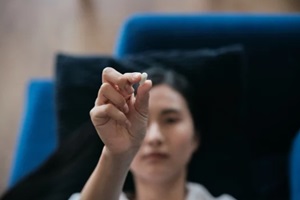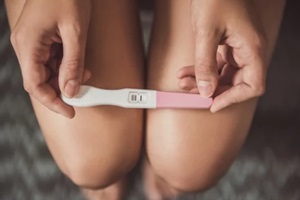 You likely know mini-pills as progestin-only birth control – the handy tablets containing synthetic progesterone. These little pills provide pregnancy prevention by stopping ovulation and changing cervical mucus and the uterine lining.
You likely know mini-pills as progestin-only birth control – the handy tablets containing synthetic progesterone. These little pills provide pregnancy prevention by stopping ovulation and changing cervical mucus and the uterine lining.
If you currently take mini-pills but want to stop, you probably have some questions. What exactly will happen when you discontinue this routine form of contraception?
Immediate Return of Fertility
One of the first effects of quitting mini-pills is your fertility is likely to bounce back quickly. Since these pills stop ovulation, once the synthetic hormones clear your system, your ovaries start maturing and releasing eggs again each month.
Bottom line – you may be able to get pregnant again right away after ending mini-pills if you are not using protection. Because conception can happen so soon after discontinuing them, have a backup plan if you’re avoiding pregnancy. This may be barrier methods such as condoms or spermicide.
You can also switch to a hormonal option such as combination birth control pills or long-acting contraceptives such as the implant or hormonal IUD. Whatever alternative you choose, start it when you take that last mini-pill to prevent coverage gaps.
Shifting Menstrual Cycles
In addition to the imminent fertility rebound, expect your periods to change. Taking mini-pills means the synthetic hormones kept your uterine lining thin and halted monthly egg release.
Removing this effect allows your natural menstrual cycle, directed by your hormones, to resume. However, it takes time to readjust. You may not get a period for the first month or more after stopping mini-pills.
Or you may have irregular, inconsistent cycles for two to three months as your reproductive system regulates. Every woman adapts differently when coming off hormonal birth control. So try to be patient while your body finds its rhythm, even if it seems erratic.
Tracking your cycles day-to-day and month-to-month helps identify your progress. If, after six months, your periods continue to be severely abnormal or never arrive, check in with your healthcare provider about the next steps.
The sudden onset of extremely heavy bleeding also warrants prompt medical attention even before the six-month mark.
Heavier Flows and More PMS
 In addition to fluctuating cycles returning after discontinuing mini-pills, your flow may intensify along with worsening PMS. Why? The synthetic progesterone in mini-pills helps minimize issues such as painful periods, heavy bleeding days, and premenstrual mood issues. Removing this regulating effect allows your body to revert to baseline patterns pre-pills.
In addition to fluctuating cycles returning after discontinuing mini-pills, your flow may intensify along with worsening PMS. Why? The synthetic progesterone in mini-pills helps minimize issues such as painful periods, heavy bleeding days, and premenstrual mood issues. Removing this regulating effect allows your body to revert to baseline patterns pre-pills.
For some women, their natural tendency is much more period misery, from excruciating cramps to seven-plus days of heavy flows to raging PMS mood swings and pain.
Talk to a women’s health specialist if your new flow feels copious or relentless or PMS hinders your normal activity. Certain supplements or prescription medications could provide relief when lifestyle measures alone come up short.
Other Bodily Adjustments Post-Mini-Pill
Beyond menstrual effects, discontinuing mini-pills may spark other bodily changes soon after quitting. Bothersome symptoms or slow return to normal function don’t happen to everyone once off mini-pills.
However, staying aware of possible fluctuations better positions you to react appropriately if they do arise. For example, small weight changes are common as your metabolism and appetite hormones change since you no longer have synthetic progesterone on board.
You may notice clothes fitting differently within a few months of stopping. Skin and hair also respond visibly to internal hormonal shifts, trying to balance the lack of exogenous hormones.
Acne that cleared up on mini-pills could worsen again when the pills stop. Unwanted hair growth patterns might decline on mini-pills yet intensify again off them. Pay attention to changes as visible clues into your biological transition.
Lastly, breast tenderness, nipple sensitivity, bloating, headaches, or moodiness may onset or decline when first quitting. These types of symptoms should stabilize within three to six months. Keep your healthcare provider informed if anything concerns you or interferes with normal function long-term.
Long-Term Outlook for Fertility
Taking mini-pills does not irreversibly harm your fertility. Research on various progestin-only formulations finds that within 6 to 12 months of discontinuing most types, conception rates compare well to the general population not using contraceptives.
 Evidence suggests prolonged injections such as Depo-Provera may slightly extend the fertility rebound timeline.
Evidence suggests prolonged injections such as Depo-Provera may slightly extend the fertility rebound timeline.
But for most mini-pill takers, your chances of conception will most likely naturally bounce back within a few months of stopping them. If actively trying but unsuccessfully conceiving after 12 months off mini-pills, consult a specialist for evaluations.
Care Through the Transition
Learning what may unfold when stopping mini-pills keeps you well-informed during such a personal transition. Yet because every woman responds uniquely to withdrawing birth control based on health status, genetics, age, and other influencers, stay closely connected with your body and doctor.
Track cycle patterns, symptoms, mood changes, and weight once off mini-pills. Promptly report anything that feels “off ” or worrisome. While most changes are temporary and mild, persistent irregularities should be evaluated so your body can regulate itself smoothly over the long term.
Raleigh Gynecology & Wellness has years of specializing in women’s health, and our team has provided countless mini-pill users guidance before, during, and after stopping this contraception.
We offer the latest medical expertise and individualized counsel regarding common concerns arising around quitting and what unfolds afterward. When you feel ready to discontinue mini-pills, contact us at (919) 636-6670 or schedule a consultation online.
